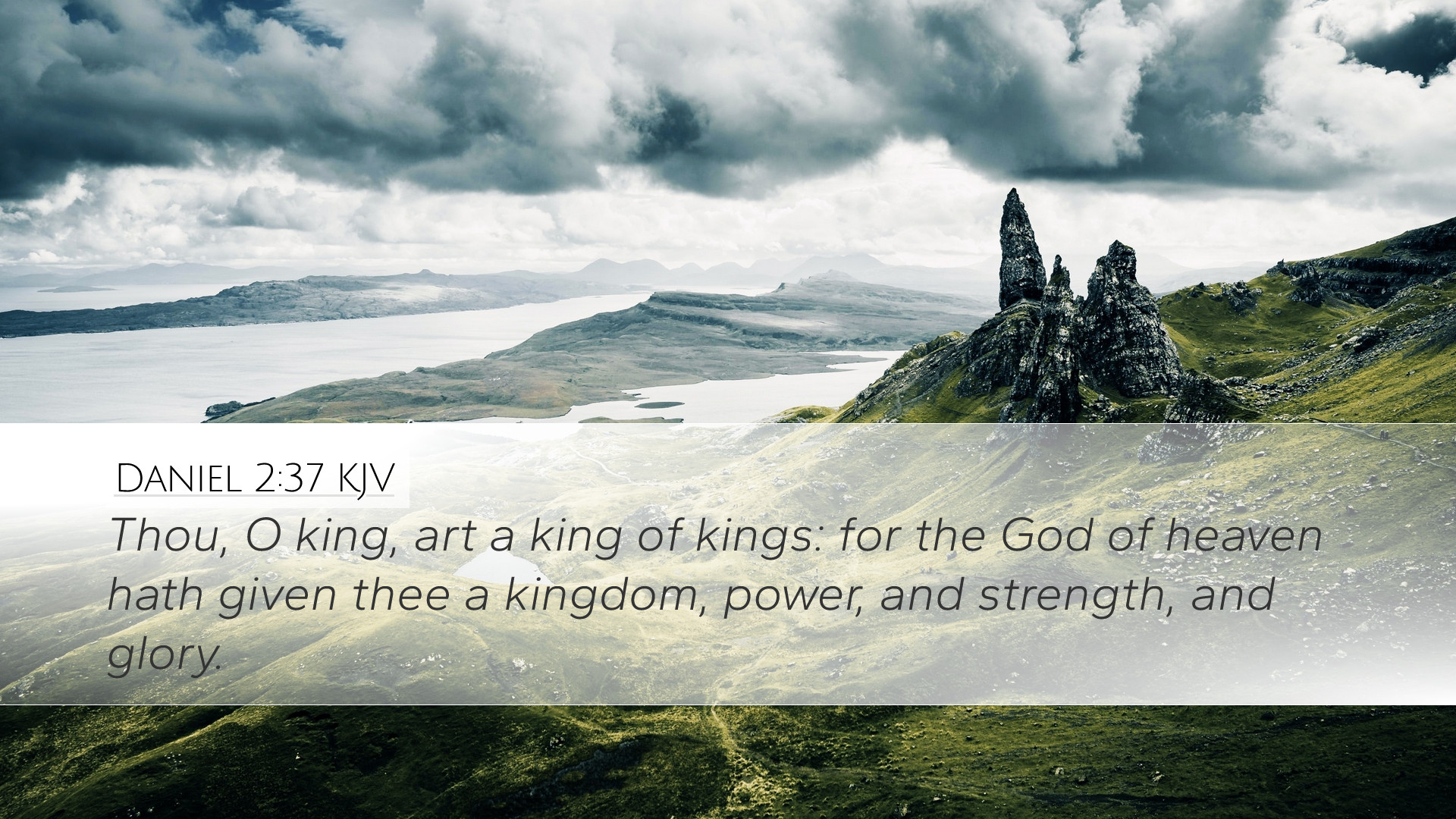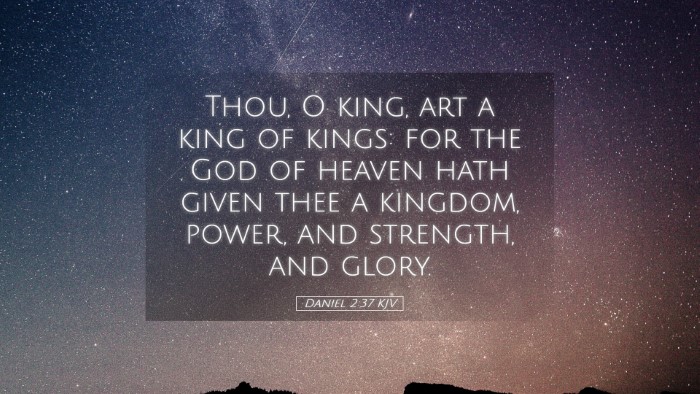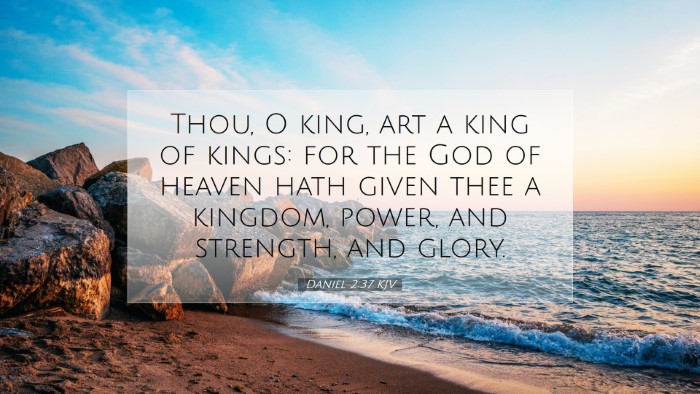Commentary on Daniel 2:37
Verse Context: Daniel 2:37 states, “Thou, O king, art a king of kings: for the God of heaven hath given thee a kingdom, power, and strength, and glory.” This verse occurs during Daniel's interpretation of King Nebuchadnezzar's dream, which sets the stage for God's sovereignty over kingdoms and history.
Understanding the Text
This verse is crucial for understanding the theme of God's sovereignty throughout the book of Daniel. Daniel affirms that Kingship is not an inherent right but rather a divinely appointed position.
Insights from Commentaries
Matthew Henry
Divine Authority: Henry emphasizes that Daniel attributes Nebuchadnezzar’s power directly to God, showcasing that all authority comes from the Creator. He asserts that Nebuchadnezzar, despite being a powerful ruler, is still under the ultimate authority of God. Henry's commentary reflects the importance of humility before God’s plan.
King of Kings: Daniel’s acknowledgment of Nebuchadnezzar as “a king of kings” highlights the hierarchical nature of ruling powers during that era. The phrase indicates that while Nebuchadnezzar holds significant authority, he is still part of a greater divine narrative orchestrated by God.
Albert Barnes
God's Sovereignty in Governance: Barnes discusses the implications of God giving kingdoms to rulers. He emphasizes that no ruler rises without God's permission and that divine providence governs the affairs of men. This highlights the theological conviction that earthly kingdoms are transient while God’s reign is eternal.
Role of a Monarch: Barnes illustrates Nebuchadnezzar’s role. The king was seen as a shepherd of the people, endowed with authority but also burdened with the moral responsibility to govern justly. This reflects a biblical understanding of leadership as service rather than privilege.
Adam Clarke
Historical Framework: Clarke provides a historical perspective on Nebuchadnezzar's reign, identifying the Babylonian empire’s prominence and discussing the relevance of God’s message through Daniel. He further describes that every kingdom has had its rise and fall, aligning with God's overarching plan as portrayed in the dream.
Lessons on Leadership: Clarke emphasizes the lessons of humility and dependence on God for leaders. He notes that wisdom and skill are ultimately divine gifts, and leaders must look to God to fulfill their roles effectively.
Theological Implications
The proclamation of God’s sovereignty over human authorities in Daniel 2:37 carries profound implications for theology. It affirms that God is actively involved in the political landscape and that human rulers are instruments of God's will.
Application for Modern Readers
Faith in God’s Plan: For pastors, students, and scholars, this verse serves as a reminder that despite political upheaval and uncertainty, God's purposes are being fulfilled. The acknowledgment of God’s sovereignty can foster hope amidst chaos.
- Positive Leadership: Leaders today are called to follow Daniel's example, recognizing that their authority is granted by God.
- Understanding Authority: Engaging with political issues requires a biblical perspective—the knowledge that all authority ultimately lies with God.
Conclusion
Daniel 2:37 reinforces the biblical concept of God’s sovereignty over human kingdoms. Drawing insights from public domain commentaries encourages readers to reflect on the divine nature of authority and the responsibilities of both rulers and the governed. Such reflections can guide believers in their moral and spiritual lives while navigating the complexities of governance within a faith context.


